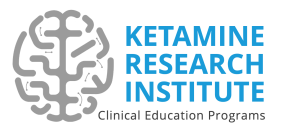
Ketamine Research Institute Training Program
"The Ketamine Research Institute's Advanced Ketamine-Assisted Psychotherapy Program is an extraordinary opportunity for those seeking to advance their knowledge and skills in ketamine-based therapy. Our 2-day intensive program takes you beyond the basics, providing an unparalleled educational experience that is both comprehensive and evidence-based.
Our program is designed to exceed all training recommendations set forth by the APA and ASA, ensuring that our participants receive the highest standard of training available. Our "hands-on" clinical experience and individualized training allow you to learn from experienced professionals and apply your knowledge in real-world settings. We believe that our program is the best available, and we invite you to join us in advancing the field of ketamine therapy"...
GW Grass, MD — Ketamine Research Institute
Transform Ketamine Assisted Psychotherapy: Master Precision Medicine and Advanced AdministrationTechniques
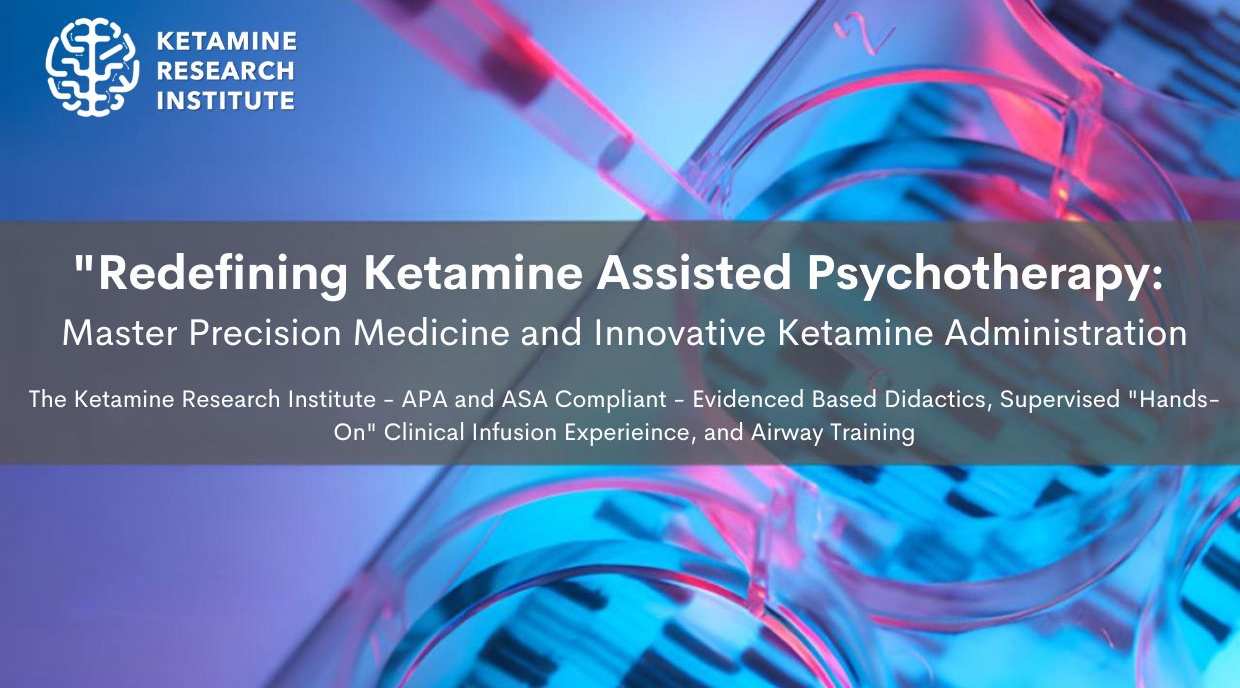
This is an Advanced KAP Course Designed for Clinicians with Prior KAP Training and/or Experience who Wish to Take Ketamine Therapy to the Next Level
Discover the latest advancements in Ketamine Assisted Psychotherapy (KAP) with our in-depth article and course description exploring precision medicine, target-controlled infusion, and patient care. Revolutionize your practice by mastering cutting-edge techniques and optimizing treatment outcomes for your patients.
Revolutionizing Ketamine Assisted Psychotherapy with Precision Medicine and Advanced Administration Techniques
Ketamine-Assisted Psychotherapy (KAP) has emerged as a promising treatment for various psychiatric disorders, including treatment-resistant depression, anxiety, and post-traumatic stress disorder (PTSD). This course provides the benefits of a comprehensive KAP training program, highlighting the role of precision medicine and advanced administration techniques, such as target-controlled infusion (TCI), in optimizing treatment outcomes. We emphasize the importance of patient selection, assessment, and safety precautions, as well as the integration of KAP with traditional psychotherapy approaches. Finally, we strongly advocate for adherence to professional guidelines and the value of learning from experts in the field.
Introduction
Ketamine, an N-methyl-D-aspartate (NMDA) receptor antagonist, has been increasingly recognized for its rapid and robust antidepressant effects. While initially used as an anesthetic, ketamine has gained traction in the treatment of psychiatric conditions, particularly in cases where conventional therapies have proven ineffective. As KAP evolves, it is essential for clinicians to receive comprehensive training in the latest advancements, including precision medicine, pharmacokinetics, and target-controlled infusion. Our training course is a state-of-the-art KAP training program designed to provide clinicians with the latest knowledge and skills required to deliver safe, effective, and personalized treatment to their patients.
Traditional methods of conducting Ketamine Assisted Psychotherapy (KAP) have faced certain limitations that may have prevented them from achieving their full potential in terms of efficacy. These limitations include:
1. Inconsistent dosing and plasma concentrations:
As mentioned earlier, traditional administration methods like intramuscular (IM) injections and oral administration can result in variable absorption, distribution, metabolism, and elimination of ketamine. These inconsistencies can lead to unpredictable therapeutic effects and response durations, which can negatively impact the overall effectiveness of KAP.
2. Insufficient integration with psychotherapy:
Traditional KAP may not adequately integrate ketamine's pharmacological effects with psychotherapeutic interventions, limiting the potential for synergistic benefits. A more comprehensive approach that combines ketamine administration with targeted psychotherapy techniques is necessary to maximize the therapeutic potential of KAP.
3. Limited personalization:
Traditional KAP approaches may not fully account for individual differences in patients' responses to ketamine, such as variations in metabolism, genetics, and psychological factors. This lack of personalization can result in suboptimal dosing and therapeutic outcomes.
4. Lack of standardized protocols:
Traditional KAP may suffer from a lack of standardized protocols and guidelines for patient selection, dosing, administration, and psychotherapeutic integration. This lack of standardization can lead to varying practices and results, reducing the overall effectiveness of KAP.
How is our training different from all others?
Our intensive training course can dramatically improve the effectiveness of KAP by addressing these limitations through the following:
1. Advanced administration techniques:
The course will teach clinicians how to use Target Controlled Infusion (TCI) systems, which provide precise, real-time control over ketamine plasma concentrations. This will allow for more consistent dosing, a better therapeutic window, and improved patient outcomes.
2. Enhanced psychotherapy integration:
The course will cover strategies for integrating KAP with various psychotherapeutic approaches, enabling clinicians to better harness the synergistic potential of ketamine's pharmacological effects and psychotherapy. This can lead to more profound and transformative therapeutic experiences for patients.
3. Personalized treatment strategies:
The course will emphasize the importance of precision medicine and provide guidance on how to tailor treatment to individual patient needs, taking into account factors like genetics, metabolism, and psychological factors. This will result in more personalized and effective KAP interventions.
4. Comprehensive guidelines and best practices:
The course will provide clinicians with a thorough understanding of professional guidelines and best practices for KAP, including patient selection, dosing, administration, and psychotherapeutic integration. This will help standardize KAP practices and enhance overall treatment effectiveness.
5. Expert instruction and practical experience:
Clinicians will learn from experts in the field and gain hands-on experience with supervised clinical infusion sessions and personal ketamine infusion experiences. This practical training will help clinicians develop the skills necessary to administer KAP effectively and empathetically, ultimately improving patient outcomes.
By addressing the limitations of traditional KAP approaches and providing advanced training in precision medicine, administration techniques, psychotherapy integration, and best practices, this course can dramatically improve the effectiveness of KAP for clinicians and their patients.
Precision Medicine and Pharmacokinetics in KAP
Precision medicine is an approach to patient care that considers individual variability in genetics, environment, and lifestyle factors to tailor treatment plans. In the context of KAP, precision medicine involves using pharmacokinetic and pharmacogenomic data to optimize ketamine dosing and administration. Pharmacokinetics is the study of how a drug is absorbed, distributed, metabolized, and excreted in the body, while pharmacogenomics examines how genetic factors influence drug response.
For example, cytochrome P450 enzymes are responsible for metabolizing ketamine into its active metabolites, HNK and DHNK. Genetic variations in the CYP2B6 and CYP3A4 enzymes can influence ketamine metabolism, leading to differences in plasma concentrations and therapeutic response. By understanding a patient's specific enzyme profile, clinicians can optimize ketamine dosing to ensure a maximal pharmacological response, minimize side effects, and enhance the overall therapeutic experience.
Target Controlled Infusion: Optimizing Plasma Concentrations
Target-controlled infusion (TCI) is a method for delivering precise, personalized ketamine doses. TCI systems use computer algorithms to calculate the appropriate infusion rate needed to achieve the desired plasma concentration of the drug. This allows for more accurate and consistent dosing compared to traditional bolus injections or manual infusions.
In KAP, TCI offers several advantages, including reduced risk of overshooting the target plasma concentration, faster achievement of therapeutic levels, and the ability to prolong psychotherapy engagement time by maintaining optimal ketamine concentrations throughout the session. This allows patients to explore deeper therapeutic insights and fosters a more transformative experience.
Patient Selection and Assessment: Ensuring Optimal Treatment Outcomes
To maximize the benefits of KAP, clinicians must carefully select patients who are most likely to respond positively to the treatment. Comprehensive patient evaluations should consider factors such as psychiatric history, medical conditions, and contraindications. For example, ketamine may not be suitable for patients with a history of substance abuse, severe cardiovascular disease, or untreated hypertension.
Developing individualized treatment plans based on these assessments helps ensure that KAP is offered to those who will benefit most, optimizing treatment outcomes and minimizing risks. Clinicians should also monitor patients throughout the course of treatment and adjust therapy as needed based on patient response.
Pre- and Post-infusion Precautions: Prioritizing Patient Safety
Safety is paramount in KAP, and clinicians must follow best practices for pre- and post-infusion care[. Prior to treatment, patients should undergo a thorough medical and psychiatric evaluation, including a review of medications and potential interactions. Clinicians should also educate patients on the possible side effects and what to expect during the infusion process.
Post-infusion monitoring is crucial to ensure patient safety and comfort. Patients should be observed for at least 30-60 minutes following the infusion to monitor for any adverse effects or complications, such as hypertension, dissociation, or emergence reactions. Clinicians should be prepared to manage these potential side effects and have a plan in place for emergency situations.
Psychotherapeutic Integration and Treatment Goals: Maximizing Therapeutic Benefits
The true power of KAP lies in its seamless integration with traditional psychotherapy approaches, such as cognitive-behavioral therapy, psychodynamic therapy, or acceptance and commitment therapy. Clinicians must be skilled in combining KAP with these modalities to amplify therapeutic benefits and promote lasting change. By helping patients identify and work towards meaningful treatment goals, clinicians can foster a more profound and transformative healing process.
Compliance with Professional Guidelines and Expert Instructors
It is essential that KAP training courses comply with recommendations made by the American Psychiatric Association (APA) and the American Society of Anesthesiologists (ASA). These organizations provide valuable guidance on best practices for ketamine administration, patient monitoring, and management of potential side effects. By adhering to these guidelines, clinicians can ensure they are providing safe, effective, and evidence-based KAP treatments.
Moreover, our high-quality KAP training course is taught by experts in the field, including psychiatrists, anesthesiologists, psychologists, and other relevant healthcare professionals. Our instructors can offer valuable insights, share their experiences, and provide practical guidance on navigating the complexities of KAP treatment.
Conclusion
Ketamine-assisted psychotherapy holds immense potential for transforming mental health care, offering hope to countless individuals suffering from treatment-resistant psychiatric conditions. To harness this potential and provide the highest level of care, we offer clinicians comprehensive training in advanced concepts such as precision medicine, pharmacokinetics, and target-controlled infusion.
Our state-of-the-art KAP training program, complete with adherence to professional guidelines and instruction from experts in the field, can ensure that healthcare professionals are well-prepared to offer safe, effective, and personalized KAP treatments. By embracing these advanced techniques and best practices, clinicians can elevate the practice of KAP to new heights of efficacy and effectiveness, ultimately improving the lives of their patients.
Are you a Psychiatrist interested in incorporating ketamine-assisted psychotherapy therapy into your practice? Look no further than the Ketamine Research Institute's new 2023 Advanced KAP program. This comprehensive training program provides clinicians with a personalized learning approach and a focus on meeting or exceeding the training standards set by the American Psychiatric Association (APA) and the American Society of Anesthesiologists (ASA).
Redefining Ketamine-Assisted Psychotherapy: Master Precision Medicine and Innovative Ketamine Administration
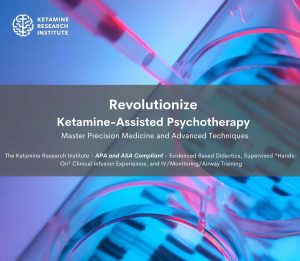 The Ketamine Research Institute's Advanced Ketamine Assisted Psychotherapy intensive training course aims to equip clinicians with the knowledge and skills to administer KAP safely and effectively.
The Ketamine Research Institute's Advanced Ketamine Assisted Psychotherapy intensive training course aims to equip clinicians with the knowledge and skills to administer KAP safely and effectively.
The program is led by Dr. Gerald W. Grass, a nationally recognized expert in ketamine therapy, who has been instructing physicians, fellows, and government organizations such as the Veterans Administration and the Department of Defense in ketamine therapy since 2013.
Meeting and Exceeding APA and ASA Guidelines for Ketamine Therapy Training
The Advanced KAP intensive training course is tailored to meet or exceed the recommendations for clinician training in ketamine infusion therapy by leading medical organizations such as the American Psychiatric Association (APA) and the American Society of Anesthesiologists (ASA). This commitment to rigorous standards underscores the institute's dedication to providing the highest level of education and training for clinicians seeking to incorporate ketamine therapy into their practices.
A Comprehensive Educational Experience with Evidence-Based Didactic Lectures and Hands-On Clinical Experiences
The comprehensive educational experience includes evidence-based didactic lectures, interactive discussions, case studies, and hands-on clinical experiences administering ketamine infusions. What sets this program apart from other ketamine infusion training programs is that it takes place at a fully operational ketamine center. In addition, it provides trainees with supervised "hands-on" clinical infusion experience under the guidance of more experienced clinicians, allowing them to experience a ketamine infusion personally. Below is a brief outline of the course curriculum:
Program Introduction
- Overview of KAP
- Historical background
- Scope of practice
Precision Medicine and Pharmacokinetics
- Understanding precision medicine in KAP
- Pharmacokinetics and pharmacodynamics of ketamine
- Personalized dosing strategies and optimization of plasma concentrations
- Target Controlled Infusion
Principles of target-controlled infusion (TCI)
- TCI devices and software
- Advantages of TCI in KAP
- Monitoring and adjusting TCI settings for optimal treatment outcomes
Patient Selection and Assessment
- Indications and contraindications for KAP
- Comprehensive patient evaluation
- Developing individualized treatment plans
- Pre- and Post-infusion Precautions
Pre-infusion assessments and preparation
- Post-infusion monitoring and safety protocols
- Management of potential adverse effects and complications
- Psychotherapeutic Integration and Treatment Goals
- Integrating KAP with traditional psychotherapy approaches
- Setting and achieving KAP treatment goals
- Managing patient expectations
Research Support and Clinical Networks
- Staying updated with the latest research in KAP
- Utilizing clinical networks for support and collaboration
- Implementing evidence-based practices
Interprofessional Collaboration
- Roles and responsibilities of various healthcare professionals in KAP
- Fostering effective communication and collaboration
- Coordinating care to optimize patient outcomes
Legal, Ethical, and Regulatory Considerations
- Understanding the legal and ethical aspects of KAP
- Navigating regulatory requirements
- Informed consent and confidentiality
Practical Training and Case Studies
- Hands-on training in KAP administration and monitoring
- Simulated patient scenarios and case studies
- Opportunities for practice and feedback
Upon completion of the training program, participants will have a thorough understanding of advanced concepts in precision medicine, target-controlled infusion, and best practices for KAP. Clinicians will be well-equipped to provide safe, effective, and personalized KAP treatment to patients and will benefit from a strong network of professional collaboration and support.
Unique Personal Ketamine Experience for Deeper Understanding of Ketamine Therapy
"Our program is designed to provide clinicians with the most comprehensive and up-to-date training in ketamine-assisted psychotherapy," said Dr. Grass. "Our unique personal ketamine experience sets us apart from other programs and provides our trainees with a deeper understanding of the phenomenological aspects of ketamine therapy. This experience also enables clinicians to develop valuable insights into the 'ketamine experience,' which can help them better understand and treat patients receiving this innovative therapy."
Personalized Learning and Practical Experience for Building Confidence in Ketamine-Assisted Psychotherapy
The training program features a comprehensive didactic curriculum that covers a range of critical topics, including advanced pharmacokinetic dosing strategies and a Precision Medicine approach to patient selection and evaluation. Participants will have ample opportunities to observe and participate in supervised clinical infusion sessions, which provide invaluable hands-on experience and help to build confidence in administering ketamine infusions to patients.
Advanced Knowledge and Expertise in Administering Ketamine Safely and Effectively
Upon completing the intensive training course, participants will receive a certificate of completion that attests to their advanced knowledge and expertise in administering ketamine therapy safely and effectively. Trainees will be able to confidently diagnose, treat, and manage a range of psychiatric and chronic pain conditions using ketamine therapy.
Applications are Now Open for the Intensive Training Course.
Applications for the Advance KAP training will be available shortly. For more information or to apply, interested individuals can visit the Ketamine Research Institute's website at www.ketamineinstitute.com.
The Ketamine Research Institute's Advanced Ketamine-Assisted Psychotherapy training program is an excellent opportunity for clinicians seeking to incorporate ketamine therapy into their practices. With its comprehensive curriculum, personalized learning, and practical experience, the program provides participants with the skills and knowledge they need to administer ketamine safely and effectively.
To Learn More About Ketamine Training
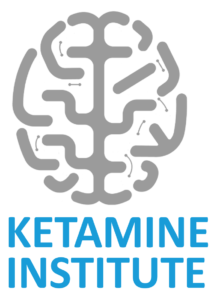 The Ketamine Research Institute is the only training program that offers an intensive, didactic, and experiential course in ketamine-based therapy. This is not a simple online course but an opportunity for clinicians to come and spend several days with us in an immersive learning environment - an actual ketamine therapy center. This type of training is certainly more intensive and expensive to provide, but the education, experience, ongoing support, and mentorship you receive are invaluable.
The Ketamine Research Institute is the only training program that offers an intensive, didactic, and experiential course in ketamine-based therapy. This is not a simple online course but an opportunity for clinicians to come and spend several days with us in an immersive learning environment - an actual ketamine therapy center. This type of training is certainly more intensive and expensive to provide, but the education, experience, ongoing support, and mentorship you receive are invaluable.
Our program was designed by experienced experts in the field of clinical ketamine research and therapy. It incorporates the latest advances in our understanding of how ketamine works, as well as new protocols and techniques to enhance ketamine effectiveness in a "real-world" setting that is not available anywhere else in the United States.
The Programs We Offer

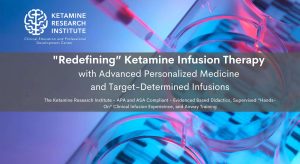 Whether you are a psychiatrist, anesthesiologist, internist/family medicine specialist, nurse practitioner, or physician assistant, we have a program designed specifically for you. We offer the most comprehensive ketamine training program in the United States, complete with a Precision Medicine/TCI-based approach to ketamine therapy, clinical experience, and ongoing support required to become highly proficient in this cutting-edge treatment.
Whether you are a psychiatrist, anesthesiologist, internist/family medicine specialist, nurse practitioner, or physician assistant, we have a program designed specifically for you. We offer the most comprehensive ketamine training program in the United States, complete with a Precision Medicine/TCI-based approach to ketamine therapy, clinical experience, and ongoing support required to become highly proficient in this cutting-edge treatment.
Our training program offers a variety of courses that can cater to all levels of experience with ketamine. From comprehensive introductory courses to more advanced specialized training, we provide the information and clinical experience necessary to safely and proficiently administer ketamine therapy. Our Precision Medicine-based approach ensures that each clinician understands how to individualize care for each patient. Additionally, our team provides ongoing support and resources to help clinicians stay up-to-date on the latest research and developments in ketamine therapy.
If you are a clinician interested in offering ketamine therapy, be sure to do your homework and only consider training programs that are reputable and offer comprehensive instruction. It could be the difference between success and failure in providing this potentially life-changing treatment to your patients.
We are confident that no other training program in the United States can provide the level of depth, clinical experience, and sophistication required to become a highly skilled provider of ketamine therapy than the Ketamine Research Institute.
What Our Graduates Are Saying
 The “Ketamine Infusion Therapy for Mood Disorders” training course for clinicians went above and beyond my expectations. Dr. Grass' brilliance and profound professional expertise made this course an unforgettable and truly eye-opening experience. I can now understand Ketamine from a pharmacological, anesthesiology, psychiatric, medico-legal, and therapeutic perspective. I was able to put the contents I learned immediately into practice and my patients are already profiting from the knowledge I gained.
The “Ketamine Infusion Therapy for Mood Disorders” training course for clinicians went above and beyond my expectations. Dr. Grass' brilliance and profound professional expertise made this course an unforgettable and truly eye-opening experience. I can now understand Ketamine from a pharmacological, anesthesiology, psychiatric, medico-legal, and therapeutic perspective. I was able to put the contents I learned immediately into practice and my patients are already profiting from the knowledge I gained.
Ricardo Febres Landauro, MD - Neurologist/Psychiatrist
 This is just a token of appreciation for your time and patience. When I enrolled in your program, it was not my intent to participate by exhaustively asking questions, but it became apparent that I had overestimated my fund of knowledge.
This is just a token of appreciation for your time and patience. When I enrolled in your program, it was not my intent to participate by exhaustively asking questions, but it became apparent that I had overestimated my fund of knowledge.
Although I have extensive clinical experience with ketamine, and I work at expanding my understanding of the fundamental physiology and pharmacology involved in the administration of ketamine for mental health disorders, I had no idea how much I didn't know.
All the knowledge that I had acquired needed the perspective and clinical understanding that you were willing to share. Thanks again for your help.
Your program exceeded all expectations"
Mark Garwin, MD - Anesthesiologist
 "Thank you again for an informative, enlightening, and practical course! Christy and I thoroughly enjoyed our experience with you, and we are excited to get all of our ducks in a row to get started with the ketamine infusions for mood disorders.
"Thank you again for an informative, enlightening, and practical course! Christy and I thoroughly enjoyed our experience with you, and we are excited to get all of our ducks in a row to get started with the ketamine infusions for mood disorders.
We appreciate your offer to send your forms/documents in a pdf as this will give us a great start in providing the right documentation, consent, etc… which interestingly our malpractice carrier is requesting. (I guess PA is not as progressive as FL.)
The course was fantastic….exactly what I was hoping for….evidence-based, scientifically yet practically oriented…allowing us to not only understand the basics of these treatments but some insights as to improve our successes and minimize the “failures” through careful patient selection and optimization.
I am looking forward to applying what we have learned to improve the lives of those in our community who qualify for this treatment and approach! We again thank you for the opportunity and look forward to staying in touch!"
Theresa Burick, MD - Integrative Medicine Specialist
 "The course was absolutely helpful! I needed this information to know how to start. Now I know what I need to obtain. However, I may still approach you when I have my first actual patient scheduled later this year and I would love some peer support from you and the others.
"The course was absolutely helpful! I needed this information to know how to start. Now I know what I need to obtain. However, I may still approach you when I have my first actual patient scheduled later this year and I would love some peer support from you and the others.
I felt I needed the hands-on information to be able to know what my clinic should be like, and now I have a lot of ideas. Also, I needed the scientific approach of how to calculate/know what plasma concentration can work for whom and how to possibly change it. Now I have something better I can work with than the Yale protocol as an IM or trochee dose (never seemed optimal and nobody explains it - yet people do whatever).
As I am not a psychiatrist or anesthesiologist I knew I had to do this training to cover my ass and I am grateful I did. I believe everyone working with Ketamine should experiment with it and other psychedelics. Nevertheless, you have to experience it to be able to serve others appropriately. Thanks for offering access to a personal experience, even for those who would not consider it otherwise."
Rixt Luikenaar, MD - OB/GYN, Transgender Specialist
 "The course was Fantastic. Thorough without drawing in details. Fluid and open to conversation. Extremely helpful and exactly what I was looking for! I now have a massive head start in helping the people in my community.
"The course was Fantastic. Thorough without drawing in details. Fluid and open to conversation. Extremely helpful and exactly what I was looking for! I now have a massive head start in helping the people in my community.
The course surpassed all my expectations. It was all good and encompassing. I think your style which allows for conversation toward what the participants find useful or of interest works really well. And having the day-to-day forms, infusions notes, and protocol/SOP forms are just so exceedingly helpful.
About the "ketamine experience"... for me personally I would like to try it again to get the larger experience! Unfortunately for you, I only trust you to do it. To see the differences between the way people respond to the experience really brought it home.
It was Excellent!"
Edward Campbell, MD - Anesthesiologist
 "I thoroughly enjoyed the course and thought it was a good mix of science and practical knowledge. And of course, it was very helpful as I had no clinical experience with Ketamine and just a little knowledge from what I’ve read...
"I thoroughly enjoyed the course and thought it was a good mix of science and practical knowledge. And of course, it was very helpful as I had no clinical experience with Ketamine and just a little knowledge from what I’ve read...
It gave me a clear road map moving forward. I’m sure there is a lot still to learn, but you never know what you don’t know until it arises....Having access to your forms and waivers, etc. is huge!...
No other training offers an actual infusion for us to experience what it’s like. Having done it now, I can appreciate how difficult it would be to explain it without having done it."
David Smith, MD - Internist/Family Practice
The Ketamine Research Institute
 Our goal is to train the Top 100 Ketamine Clinicians in the United States. Our graduates will become leaders in their field, highly respected ketamine experts, and serve as a professional examples of clinicians providing the safest and most effective ketamine therapy available. The Ketamine Institute is leading the way in the field of ketamine infusion therapy and physician education with our new ketamine infusion training program.
Our goal is to train the Top 100 Ketamine Clinicians in the United States. Our graduates will become leaders in their field, highly respected ketamine experts, and serve as a professional examples of clinicians providing the safest and most effective ketamine therapy available. The Ketamine Institute is leading the way in the field of ketamine infusion therapy and physician education with our new ketamine infusion training program.
We’re on a mission to accelerate the health care revolution. We have pioneered ketamine infusion therapy to bring the latest breakthrough discoveries about Precision Medicine and Target-Controlled Ketamine Infusions out of the research lab and into our infusion centers and educational programs.

